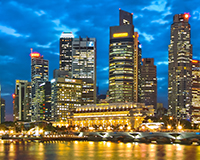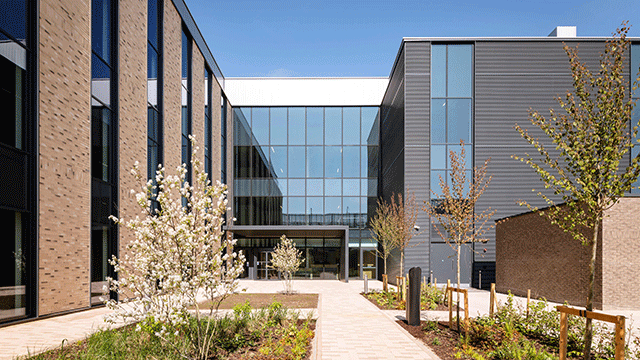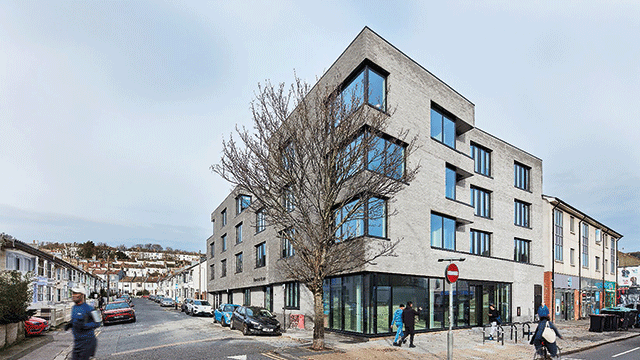 Economic uncertainty in China is casting a shadow after a strong half-year for Asian property investment, writes Helen Roxburgh
Economic uncertainty in China is casting a shadow after a strong half-year for Asian property investment, writes Helen Roxburgh
When China crashes, the world holds its breath. So it was this summer, when the Shanghai stock market plummeted by 30% in a series of dramatic falls. More than half the companies listed filed for a trading halt, and despite government intervention, the index continued to spiral downwards. Global companies saw their stocks devalued by $4tn.
The stock market volatility comes on the back of a strong half-year for Asian real estate investment, with healthy investor appetite, big transactions and trophy assets coming to market. Asian capital continues to cross borders, while global investors find new deals on the continent. Investment volumes in Asia are expected to reach $140bn this year, translating to a 7% annual increase, according to JLL.
But uncertainty continues around the impact of the Chinese economy.
“The stock market correction has wiped significant value off many listed developers, which could see their financial positions come under pressure,” says Nicholas Holt, Asia Pacific research director at Knight Frank.
However, some think stock market volatility could be a boost for real estate. Since the financial crisis, portfolio allocation to real estate has risen steadily; volatility in global markets has increased the attraction of real estate as an investment in the past.
“In the face of a challenging economic outlook, we believe investors will show a preference for core assets, driven by a flight to quality,” says Henry Chin, head of research at CBRE.
Commercial hotspots
Office leasing activity in Asia Pacific surged in Q2, with gross and net leasing up by 41% and 76% year-on-year. Hong Kong and Tokyo are forecast to be star rental performers during 2015 in office markets, even though constrained by a lack of assets. Tokyo is seeing strong capital value appreciation on prime office assets, buoyed by the government drive to attract international investment.
In Hong Kong, transaction volumes for Q2 2015 more than doubled year-on-year, largely due to a three-hotel portfolio platform deal for $2.4bn.
In number of deals, India contributed 40% of total regional gross absorption, with volumes nearly double last year’s.
Office markets in tier-one Chinese cities also performed well through the year and look set to continue this trend, underpinned by resilient demand from domestic occupiers.
Residential hotspots
Policy restrictions remain in place in various Asian residential markets, but sales activity is still increasing. China has relaxed its rules for buyers of second homes, and the latest interest rate cut brought the effective mortgage rate to a historic low in China and this should support a recovering housing market.
The Indonesian government continues to discuss relaxing the rules around foreign ownership of residential, which could give the market a boost and draw investment from across Asia. And prices are soaring in Hong Kong, particularly for high-end residential, driven by demand from local and foreign buyers.
Growth areas
E-commerce is a major demand driver, and key cities in India remain high on investor radars, despite difficulties. Investors continue to target stabilised assets in the retail and logistics sectors and there is an abundance of liquidity among new private equity funds.
Logistics across Asia in general remain a hot and vastly undersupplied sector.
Assisted living and senior housing remain growth areas in Asia. A number of investors have begun to dip their toes into these markets, including an agreement between Texas-based Greystone Communities and Beijing-based CITIC Guoan to work on a portfolio of senior care projects in China.
Risks and challenges
Trading conditions this year could be fairly challenging, with uncertainties on the horizon, such as the Chinese slowdown and the US interest rate rise.
Second-tier cities in China are vulnerable to supply gluts of offices and retail, facing lacklustre demand from occupiers and slower economic growth.
“China’s slowdown is the biggest challenge to the region, if not the world,” says Holt. “Although it was always going to come, how the slowdown and rebalancing of the Chinese economy is handled will have a significant impact.”
Must-have contacts
John Marsh, managing director of LOGOS, investing in logistics across China with new partners CBREI and Ivanhoé Cambridge.
Ted Li, executive director, capital markets, Cushman & Wakefield China
Wang Tao, chief China economist, UBS
Todd Lachlan, country head for Indonesia, JLL
City guide: Singapore
Singapore is a hot, buzzing, modern, entrepreneurial gateway city. Popular for its easy liveability, the city is diverse in terms of ethnicity, but united in its two central loves: shopping and eating.
Why invest?
Singapore is a mature market and investment is a long-term, reliable play. Tax rates are low, English is the main language, and the business environment is very investment-friendly. The Singapore office investment market has been very active this year, including the sale of trophy assets such as BlackRock’s Asia Square Tower 1, a 50% stake in Keppel Land’s Capital Square, and the Axa Tower, one of Singapore’s tallest skyscrapers.
“Singapore is the most mature economy in South East Asia, very investment-friendly, with relatively low taxation, and good for long-term investments,” says Desmond Lim, head of CBRE Research for Singapore. “It is a good place to park your capital because of the strength of the Singaporean dollar.”
The numbers
67% increase in transactions year-on-year
25% The amount Singapore office rents will increase by 2019, according to Knight Frank’s Global Cities report
$3.8bn Total transactions in Singapore in the first half of the year
The opportunities
Many investors are seizing opportunities in the office market, given the forthcoming strong supply pipeline and active investment market. Residential continues to be an attractive investment, with sales of new homes up 61.4% quarter-on-quarter in Q2, while the secondary market grew 47.9% quarter-on-quarter – the most activity in more than two years.
Stand-out scheme
The Marina One development in Singapore, including two 34-storey residential towers, two 30-storey grade-A office towers and a retail centre. It is a joint venture between Malaysia’s Khazanah Nasional and Singapore’s investment company Temasek, and forms part of the land deal between the two countries. The scheme should be completed by the end of 2016.
Top tips
- Singapore is a very clean city for a reason – it is illegal to litter, eat on public transport, smoke in particular places, or drop cigarette butts. If caught, you will be fined.
- Singapore is hugely diverse in terms of ethnicities, with four national languages: English, Mandarin, Malay and Tamil.
- Tipping is not common in Singapore; a service charge will be automatically added to the bill in restaurants.
- Singapore is one degree north of the equator, so the weather is predictably hot and humid all year round.










